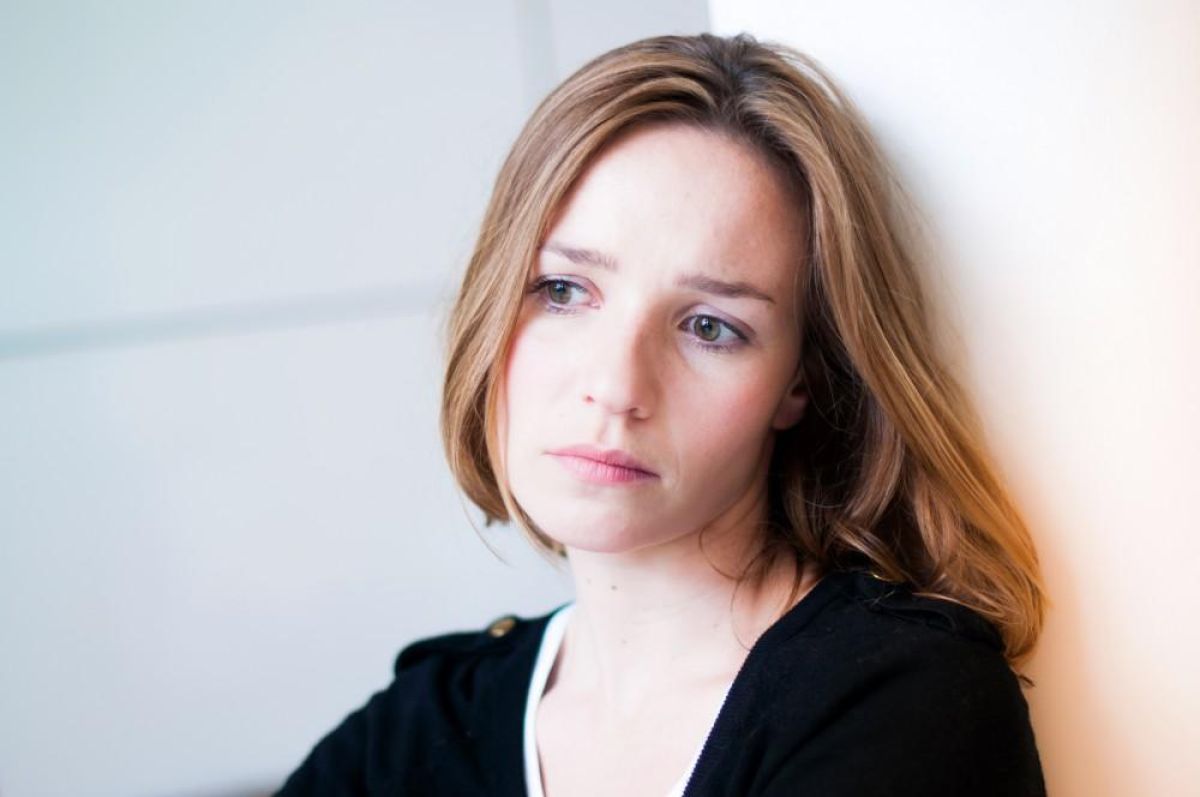5 Tips for Managing Stress During IVF

Infertility is a common medical condition, affecting 1 in 8 couples. Millions of those couples turn to in vitro fertilization (IVF) for help in becoming parents. IVF is a process in which a woman’s egg is fertilized in a laboratory and transferred to her uterus.
IVF is the most effective form of assisted reproductive technology. However, having IVF can be stressful because of the challenges of infertility and the ups and downs of treatment.
If you’re undergoing IVF, taking some simple steps can help you feel less stressed. The caring specialists at California Center for Reproductive Health recommend these five strategies for managing stress during IVF.
Stress buster #1: Yoga
Yoga combines rhythmic breathing with poses that stretch your muscles and boost your flexibility. It can help both your mind and body feel more relaxed.
There are many types of yoga. During infertility treatment, opt for gentle yoga styles such as hatha yoga. Avoid “hot” yoga, which takes place in overheated rooms.
Stress buster #2: Walking
Exercise is a proven stress buster. However, your doctor may suggest that you avoid vigorous exercise during IVF.
Walking offers a gentler exercise option. Like other types of exercise, walking boosts the release of your body’s own natural stress-soothing brain chemicals. It can improve your mood and help you feel refreshed and energetic.
Stress buster #3: Mindfulness meditation
Mindfulness meditation is a practice of calming your mind. You focus mindfully and intentionally on the present, letting go of worries about the future and regrets about the past.
Using audio guidance is a great way to get started with meditation. There are many popular meditation apps available.
Stress buster #4: Expressive writing
Expressive writing gives you an opportunity to pour your emotions about an upsetting event or situation, such as infertility, onto a page. Writing allows you to express thoughts you may not feel comfortable sharing with others. This can help you put stressful feelings into perspective and feel less upset by them.
Try writing about what’s stressing you for 20 minutes a day for three or four consecutive days. Don’t worry about spelling or grammar; you’re writing only for yourself.
Stress buster #5: A daily gratitude journal
When you’re feeling weighed down by anxiety and negativity, focusing on things that make you feel grateful can lift you up into a more positive place.
Keeping a gratitude journal is an excellent way to build a practice of appreciating the good things in your life. Each day, write down a list of the things that make you feel grateful. Your list could include items such as:
- The day’s beautiful weather
- The joy you feel when you spend time with friends
- The taste of your favorite food
- The happiness you feel when your dog cuddles up next to you
- The way your partner makes you laugh
Tracking the many things that make you feel thankful can bring more joy into your life and help shift your attention away from the challenges of infertility.
Why reduce stress?
Stress isn’t just an annoyance. It actually has a physical impact on your body. When you’re stressed, your body releases a cascade of stress hormones. If you’re chronically stressed over long periods of time, high levels of stress hormones can contribute to health problems.
Using stress reduction techniques like the ones above can lower the levels of stress hormones in your body. Some studies have found that reducing stress can improve your odds of getting pregnant during an IVF cycle.
Find out more
If you’re experiencing infertility, one of the best stress-busters is to work with a caring, experienced medical team. Here at California Center for Reproductive Health, our caring providers offer a full range of diagnostic and treatment services for couples dealing with infertility.
To find out how we can help you, call your nearest Los Angeles-area clinic in Encino, West Hollywood, Santa Monica, or Valencia, California, or use the easy online tool to schedule a visit with one of our specialists.
Eliran Mor, MD
Reproductive Endocrinologist located in Encino, Valencia & West Hollywood, CA
FAQ
What does a reproductive endocrinologist and infertility specialist do?
Reproductive endocrinology and Infertility is a sub-specialty of Obstetrics and Gynecology. In addition to managing medical and surgical treatment of disorders of the female reproductive tract, reproductive endocrinologist and infertility (REI) specialists undergo additional years of training to provide fertility treatments using assisted reproductive technology (ART) such as in vitro fertilization.
Reproductive endocrinologists receive board certification by the American Board of Obstetrics and Gynecology in both Obstetrics and Gynecology and Reproductive Endocrinology and Infertility.
When should I see an REI specialist?
In general, patients should consider consulting with an REI specialist after one year of trying unsuccessfully to achieve pregnancy. The chance of conceiving every month is around 20%, therefore after a full year of trying approximately 15% of couples will still not have achieved a pregnancy.
However, if a woman is over the age of 35 it would be reasonable to see a fertility specialist earlier, typically after 6 months of trying.
Other candidates to seek earlier treatment are women who have irregular menses, endometriosis, fibroids, polycystic ovary syndrome (PCOS), women who have had 2 or more miscarriages, or problems with the fallopian tubes (prior ectopic pregnancy).
What are the reasons we are having trouble conceiving?
Approximately 1/3 of the time cause for infertility is a female factor, 1/3 of the time a male factor, and the remaining 1/3 a couples’ factor.
At CCRH, we emphasize the importance of establishing a correct diagnosis. Both partners undergo a comprehensive evaluation including a medical history and physical exam.
Furthremore, the woman’s ovarian reserve is assessed with a pelvic ultrasound and a hormonal profile. A hysterosalpingogram (HSG) will confirm fallopian tube patency and the uterine cavity is free of intracavitary lesions. A semen analysis is also obtained to evaluate for concentration, motility, and morphology of the sperm.
Additional work up is then individualized to direct the best possible treatment option for each couple.
What is IVF? What is the process like?
In vitro fertilization (IVF) is the process that involves fertilization of an egg outside of a woman’s body.
The process starts with fertility drugs prescribed to help stimulate egg development. In your natural cycle, your body is only able to grow one dominant egg, but with stimulation medication we can recruit multiple eggs to continue to grow. After about 8-10 days of stimulation, the eggs are surgically retrieved and then fertilized with sperm in a specialized laboratory. Fertilized eggs are then cultured under a strictly controlled environment within specialized incubators in the IVF laboratory for 3-5 days while they develop as embryos. Finally, embryos (or an embryo) are transferred into the uterine cavity for implantation.
Should I have IVF?
Before deciding if IVF is the right choice, it’s important to sit down with an REI specialist to discuss available treatment options. For some people, other methods such as fertility drugs, intrauterine insemination (IUI) may be the best first choice treatment. At CCRH, we believe each individual couple is unique and not everyone needs IVF.
Is the IVF procedure painful?
While not painful, the fertility medications may some side effects including headaches, hot flashes, mood swings, and bloating. The injection sites may also bruise.
Will IVF guarantee a baby?
Unfortunately, no. Many people think once they start IVF it’s a matter of time that they will be pregnant and have a baby. But according to national statistics per the Society of Assisted Reproduction (SART), on average 40% of assisted reproduction cycles achieve live births in women under age 35. The chances of success then continue to decrease with advancing age.
At CCRH, we employ only evidence-based interventions to ensure patient safety and optimal outcome. While we cannot guarantee a baby, we guarantee that you will receive the best, most advanced, personalized care to help you maximize your chance of a baby.
What is the success rate for IVF?
The average IVF success rate (success measured in live birth rate) using one’s own eggs begins to drop around age 35 and then rapidly after age 40. This is due to the decline in egg quantity and egg quality as a woman ages.
Our clinic’s success rate consistently beats the national average year after year.
Do insurance plans cover infertility treatment? How much does IVF cost?
Individual insurance plans often do not have any coverage for infertility treatments. If you have a group plan, you can call members services to see if they have coverage for infertility (including consultation/workup and IVF).
After your consultation with our REI specialist, one of our dedicated account managers with sit with you to go over the cost of treatment.




